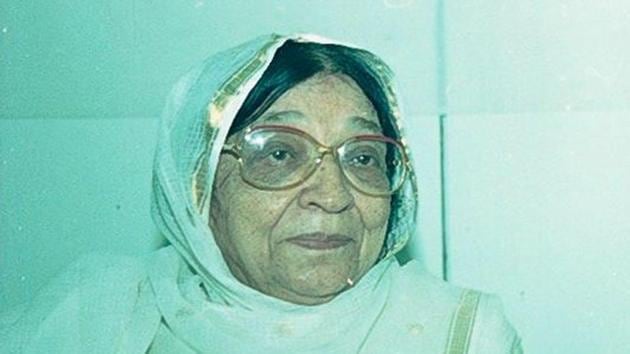Krishna Sobti’s writings reflect her deep roots in Punjab
“The language used by Sobti in her creations is influenced by intermingling of Hindi, Urdu, and Punjabi culture,” Bharatiya Jnanpith.
Finally bestowed with the Jnanpith Award, Hindi writer Krishna Sobti’s works have for long reflected her deep roots in Punjab. Sobti, 92, was born in Gujrat region of pre-Partition Punjab and has liberally used Punjabi dialect and terminologies even while writing in Hindi.

Known for her works Zindaginama, Dil-o-Danish, E Ladki, among others, she had her first short story published in 1944. The same year, she wrote one of her most famous stories, Sikka Badal Gaya, on Partition. Even the announcement made by Bharatiya Jnanpith on Friday said, “The language used by Sobti in her creations is influenced by intermingling of Hindi, Urdu, and Punjabi culture.”

“Not only the places but the language she uses in her writing is telling of her Punjabi inheritance. Even titles such as Mitro Marjani are words taken from Punjabi,” said poet Surjit Patar, who is chairman of Punjab Art Council, adding, “It’s an honour for us Punjabis that Sobti has been awarded with Jnanpith Award. She should have been awarded long time ago.”
She had once refused to compromise even when a publisher sought to alter the language of one of her works, substituting the Punjabi and Urdu with chaste Hindi.
Her new book, released this year, is named Gujrat Pakistan se Gujarat Hindustan. It tells the story of Sobti’s own life’s journey, and the journey of those who became homeless in their own country.
Anti-establishment stance
Chaman Lal, a retired professor from Jawaharlal Nehru University (JNU) and now a fellow of Panjab University, too said the award has been given belatedly. “Sobti is one of the most upright writers. She has written widely on Partition and Punjab. She has always stood up to communal forces and has reflected the liberal atmosphere of pre-Partition Punjab.”
True to what Lal said, Sobti had returned the Sahitya Akademi Award and even the fellowship in October 2015, protesting the Dadri lynching and the killing of Kannada writer MM Kalburgi. She declined the Padma Bhushan — the country’s third highest civilian honour — in 2010, keeping her distance from the establishment.

Feud with Amrita Pritam
Her novel Zindaginama, for which Sobti was given Sahitya Akademi Award in 1980, too focuses on life in the Gujrat region of undivided Punjab in the 1900s. It was translated into Punjabi by novelist Gurdial Singh.
For this particular novel, she had filed a suit in 1984 against Punjabi poet Amrita Pritam who had published a book entitled, Hardatt Ka Zindaginama, accusing her of stealing the title. The case was decided in favour of Pritam after 26 years, in 2011, six years after Pritam’s death.



